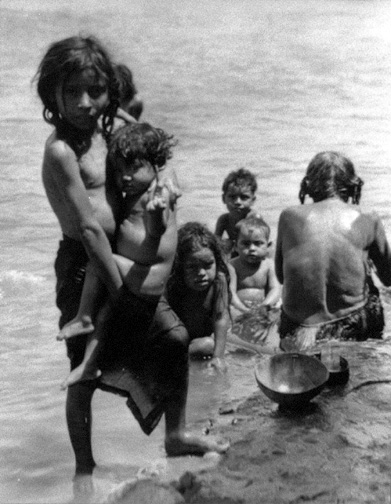Famous Photographers - Part 15 - Tina Modotti

Famous Photographers - Part 15 - Tina Modotti

Just by chance I happened to see a reference to Tina Modotti and sought out her photos. Not only did she live an interesting life, but she also created a number of very creative and unique photos. Pretty well all of her photographs were taken in Mexico, and many have a revolutionary theme. Most of her photos were lost for decades, until they were found in a box, which could explain why so many appear faded.
From Wikipedia:
Modotti was born Assunta Adelaide Luigia Modotti Mondini in Udine, Friuli, Italy. Her mother, Assunta, was a seamstress and her father, Giuseppe, was a mason. In 1913, at the age of 16, she immigrated to the United States to join her father in San Francisco, California.
Modotti was portrayed by the actress Ashley Judd in the 2002 film Frida , about fellow artist Frida Kahlo .
From Museum of Modern Art:
Tina Modotti’s photographs blend formal rigor with social awareness....She acted in plays and silent films, and worked as an artist’s model during her first years in the country. In 1920 she met photographer Edward Weston, who mentored her and was a great influence on her subsequent work. By 1921 they had become lovers, and in 1923 they moved together to Mexico City, which had become a cosmopolitan center in the interwar years. There, cultural and political expatriates like Weston and Modotti, Sergei Eisenstein, and Leon Trotsky moved in bohemian circles with Mexican intellectuals and artists such as Frida Kahlo and Diego Rivera. Modotti and Weston opened a portrait studio in the city.
With her camera, Modotti captured Mexico’s sights and people. She took its folk art and landscapes as the starting points for her most abstract images. [Her photo] 'Telephone Wires, Mexico' isolates taut stretches of wire against a pale sky, finding gridded linearity in the skyscape. 'Staircase and Stadium, Mexico City' records repetitions of stairs and shadows, creating complex images that push these architectural features toward abstraction. Modotti’s social concerns emerge in photographs such as 'Worker’s Hands', a quiet celebration of a laborer’s dignity. 'Mella’s Typewriter' reveals her leftist leanings and carries a subtle social heft. [Mella was a revolutionary who was assassinated while he was walking with Modotti.]
Below you will find 30 of her photos.
1. Illustration for a Mexican Song (1927) (Buzz note: The bullets are indicative of her spending much time with revolutionaries.]

2. Workers' Parade (1926)

3. Worker's Hands (1927)

4. Woman with Flag (1928)

5. Staircase and Stadium, Mexico City (1927)

6. Mella's Typewriter (1928)

7. Tehuantepec Type (1929)

8. Fiesta in Juchitan, Oaxaca, Mexico (1927-1929)

9. Child in Sombrero (1927)

10. House in Tehuantepec (1923-1930)

11. Telephone Wires, Mexico (1925)

12. Easter Lily and Bud (1925)

13. Woman with Olla (1926)

14. Exterior of Pulquiria, Mexico (1926)

15. Edward Weston (February 1924) (Buzz note: She took this photo when she was living with him.)

16. Convent of Tepolzotian, Mexico (1924)

17. Roses, Mexico (1924)

18. Oil Tank (1927)

19. Roofs of Mexico City (1923-30)

20. Staircase (1924-26)

21. Hands Washing (1927)

22. Rene D'Harnoncourt Puppet (1927)

23. (Buzz note: I have titles and dates for only a couple of the following photos)

24.

25.

26.

27. Wine Glasses (1925)

28.

29. Sugar Cane, Mexico (1929)

30.



I'll bet that no member of NT has ever seen Tina Modotti's photos before, of if they ever saw one, did not know who the photographer was. If I'm wrong, I'd like to see a comment disputing my supposition.
You are right, Buzz. I hadn't heard of her and what a treat to be introduced to her photography! Thank you.
I've never seen the photos before Buzz. I love the very first one.
A guitar, corn and bullets...no doubt that it was Mexico and the 1920's.
Excellent essay Buzz.
When I took photography in college (1973), she was required viewing by our professor.
Guess I lost my bet. However, I'll bet the professor was a socialist. Modotti became a devout communist, was even deported from Mexico because she was a revolutionary (although she snuck back in, and died there in her 40s). This is an example of her "communist" photos:
I don't think he was a socialist. He was just someone who appreciated great photography,
You have a good knowledge of historical photographers then. Are there any you suggest for me to do essays of? The only ones I'm ready to do next are Henri Cartier-Bresson and Joe Rosenthal.